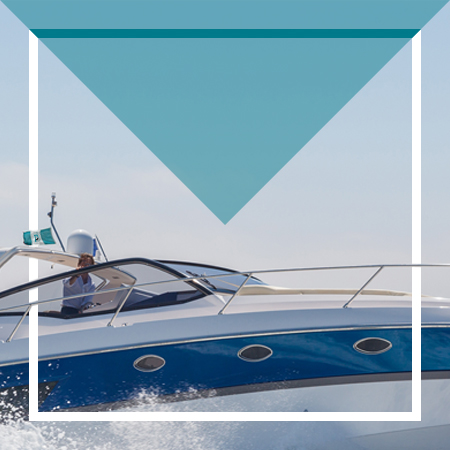Q D
Qualification Details
Qualification DETAILS
Transmit and Receive Information by Marine Radio Fee-for-Service

Unlock the power of marine communication with this dynamic qualification, your key to mastering the airwaves of the sea. Dive deep into the world of marine radio, where you'll not only learn to expertly transmit and receive information across very high frequency (VHF) and high frequency (HF) channels but also become adept at navigating the critical nuances of emergency communications. From operating sophisticated emergency position indicating radio beacons (EPIRBs) to handling search and rescue radar transponders (SARTs), automatic identification system search and rescue transmitters (AIS-SARTs), and AIS man overboard (AIS-MOB) devices, this course ensures you're prepared for every eventuality. With a special focus on digital selective calling man overboard (DSC-MOB) devices, you'll be at the forefront of maritime safety technology.
Beyond the waves and into the technical terrain, we'll guide you through essential radio equipment and power supply maintenance, alongside fault-finding procedures that are crucial for keeping communications crisp and clear in any condition. Step into this course and emerge as a guardian of the sea, where every frequency and signal could mean the difference between peril and safety.
This unit/ qualification is required to apply for a Long Range Operator Certificate of Proficiency (LROCP) through The Office of Maritime Communications at the Australian Maritime College.
This unit involves the skills and knowledge required to:
- Transmit and receive information by marine radio, including using marine very high frequency (VHF) and high frequency (HF) radio according to regulations.
- Carry out user maintenance and fault-finding procedures on radio equipment and power supplies.
- Operate emergency position indicating radio beacons (EPIRBs), search and rescue radar transponders (SARTs), automatic identification system search and rescue transmitters (AIS-SARTs), AIS man overboard (AIS-MOB) devices and digital selective calling MOB (DSC-MOB) devices.
This unit applies to people working in the maritime industry in the capacity of:
- Master on commercial vessels <80 m in length within the exclusive economic zone (EEZ), or
- Chief mate or deck watchkeeper on a vessel <80 m in length within the EEZ.
This unit is offered over a three-month period through a blended delivery model of face-to-face and online training and assessment. The face-to-face component is delivered as a practical workshop (1 day). Prior to commencement of the face-to-face component of the unit, online pre-learning and formative assessment activities must be completed. You will have online support from trainers and assessors throughout the duration of the unit.
You are welcome to attend more than one face-to-face workshop during the three-month program if you would like extra learning or if the trainer and assessor has identified that you need extra time in order to gain competence. Extra workshops incur no further costs and are included in your original unit fee/s.
Please note: The unit can be completed prior to the three-month period; however, this is based on a student's current level of knowledge and experience.
You will need a computer or tablet with internet access for the online components of this program. All resources required for the practical workshop will be provided by PTG.
Legislative and regulatory requirements are applicable to this unit. The Radiocommunications Act 1992 (the Radcomm Act), through the Radiocommunications License Conditions (Maritime Ship License) Determination 2015 requires that operators of VHF maritime ship stations are appropriately qualified to operate the stations. This means that operators are required to hold a relevant Australian maritime radio operator's certificate of proficiency or an equivalent overseas qualification.
The Australian Maritime College (AMC) acts as the Australian Communications and Media Authority (ACMA) delegate in providing marine radio certificate services under the Radcomm Act, including the issue of Long Range Radio Operator’s Certificates of Proficiency (LROCPs). Operators who have attained a Statement of Attainment from a Registered Training Organisation (RTO) for this unit can apply to the AMC for the issue of a LROCP without the need to sit a further examination. This unit is one of the requirements to obtain Australian Maritime Safety Authority (AMSA) certification as defined in the National Standard for Commercial Vessels (NSCV) Part D and Marine Order 505.
Therefore, once you have achieved a satisfactory result for this unit of competency, you will receive a statement of attainment. You will then need to submit an application for the recognition of a Unit of Competency (UOC) with The Office of Maritime Communications at the Australian Maritime College to obtain a Long Range Operator Certificate of Proficiency (LROCP) license.
For more information:
Marine radio certificates (amsa.gov.au)
How to Obtain a Certificate of Proficiency - Australian Maritime College (amc.edu.au)
$220.00 is due upon enrolment and prior to accessing the student online platform.
For information on PTG payment plans, please contact Paradigm Training Group.
| Course Name | |
| MARC043 Transmit and Receive Information by Marine Radio |
Our Location
Paradigm Training Group is now conveniently based at Australia’s premier marine facility, The Boat Works, located in Coomera, QLD. Our office and training room are situated in the South Yard at A-05, directly opposite The Boat Works administration office and slipway, on the waterside of Hangar H.
